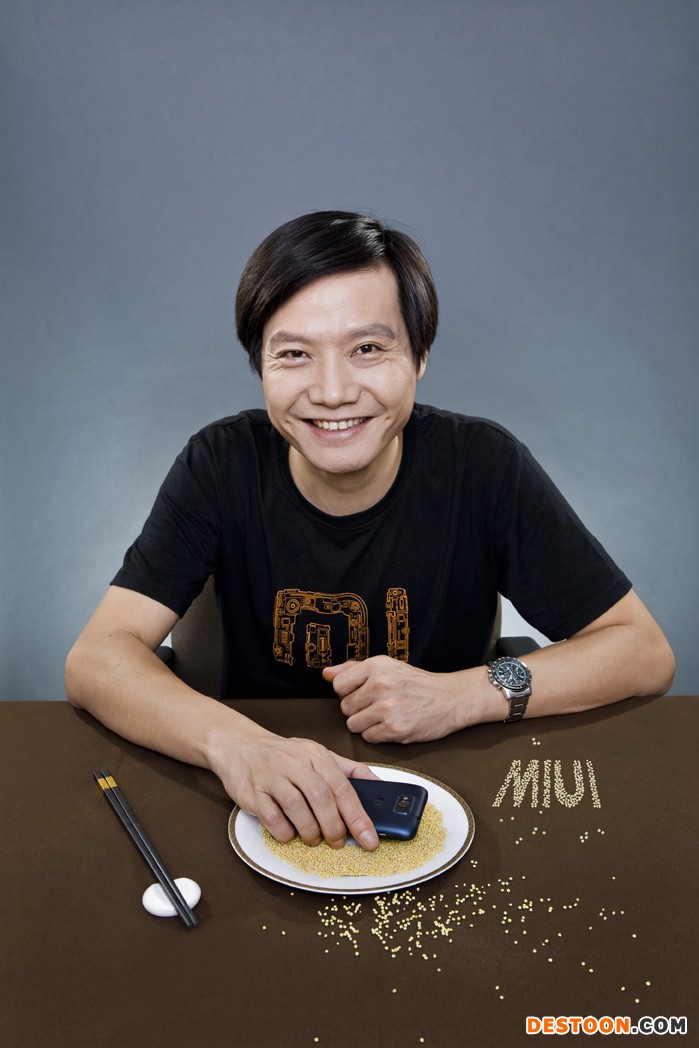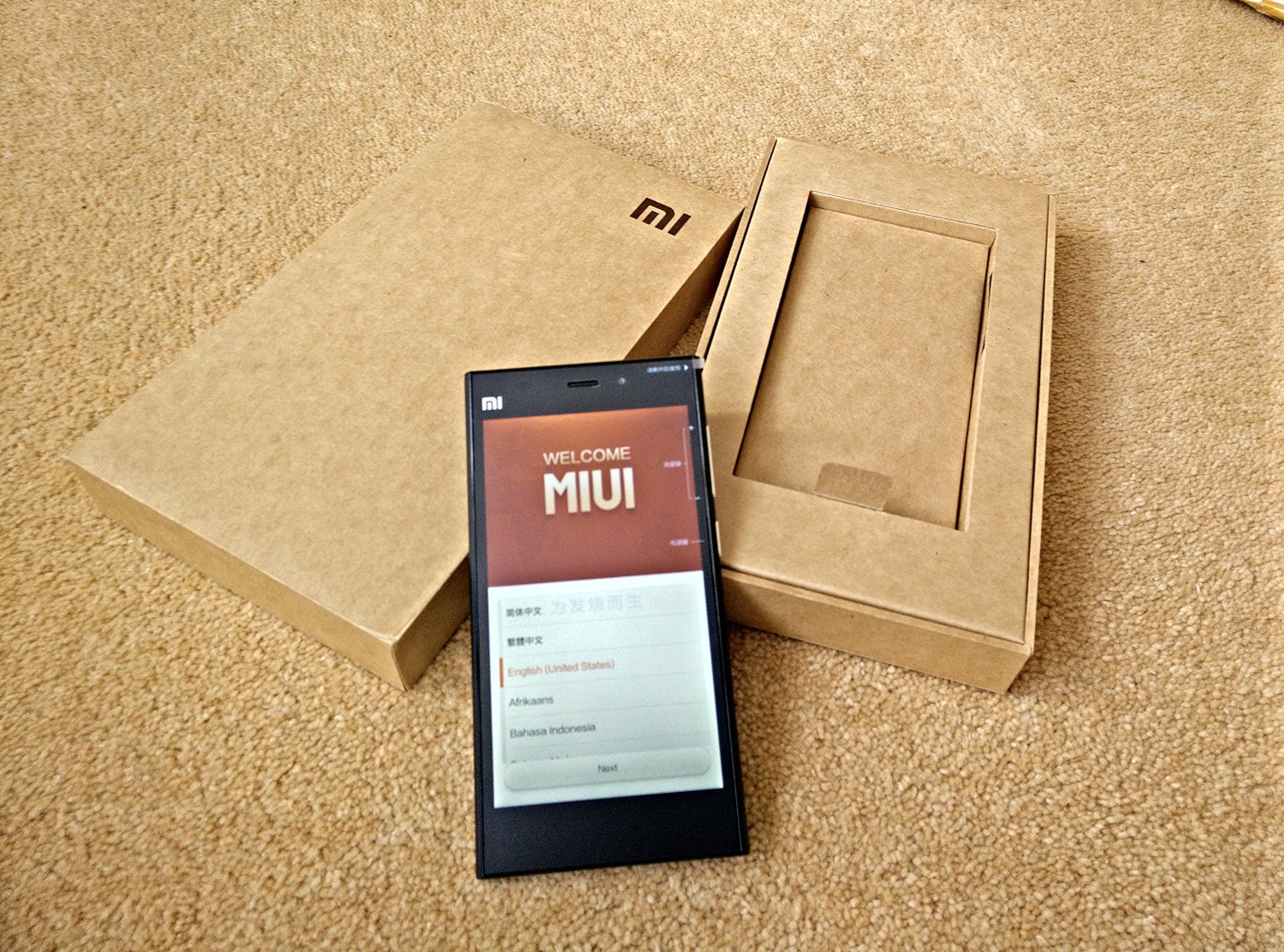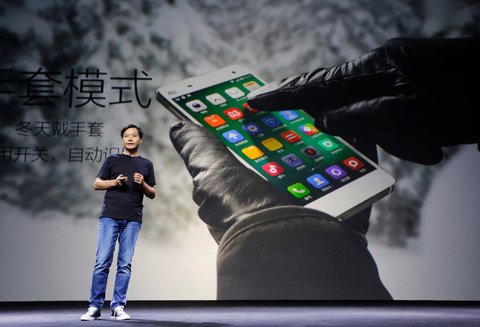The Smartphone Company That 'Apes' Apple Is Seeking To Be Valued At USD50 Billion. Really?
Often accused of aping Apple (it's founder dresses same as Steve Jobs and also delivers Apple-like keynotes complete with 'One More Thing...' slides), the Chinese smartphone company Xiaomi is seeking to raise USD40 billion to USD50 billion. But is it really worth it?
Xiaomi, the Beijing-based smartphone company founded four years ago, is in talks for a funding that would value the company at USD40 billion to USD50 billion, a valuation higher than any publicly traded PC or smartphone maker, including Apple and Lenovo
The discussions are at an early stage and nothing is finalized, said the people, who asked not to be identified because the matter is private. The world’s third-biggest smartphone maker had a financing round in August 2013 that valued the company at $10 billion. Founder and Chief Executive Officer Lei Jun has pushed Xiaomi into new markets from Singapore to India.
bloomberg.comWhile the international expansion, combined with surging sales of its Mi 4 smartphone and low-cost Redmi model, have vaulted Xiaomi into the ranks of the world's top vendors, critics of the company consider its upward valuation spiral hard to justify
Ethan Bilby, a Reuters Breakingviews columnist, in an op-ed published on The NYT, writes that while Xiaomi is growing fast, the company lacks its U.S. rival Apple's dominance or innovation
It is not out of the question that Xiaomi could become China’s Apple. But there are two things it lacks. The Californian company is innovative – it helped introduce consumers to the PC and the touch-controlled smartphone.
Many of Xiaomi’s products essentially follow in Apple’s footsteps, but at lower prices. Apple is also dominant in its niche, with a 42 percent share of the United States market, according to comScore. Xiaomi’s local market share is just 14 percent.
The Reuters Breakingviews columnist, while noting that Xiaomi has some creative flair, and certainly is a whiz at marketing, considers it premature to award Xiaomi an Apple-like valuation
Xiaomi has some creative flair, and certainly is a whiz at marketing, but not enough to justify luxury-goods style margins. Its operating system is a modified version of Google’s Android rather than being a wholly new invention. Xiaomi has come a long way – economies of scale and willing investors can probably take it further, even outside of its home market, China, where most of its sales still take place. But awarding it an Apple-like valuation seems premature
The said valuation suggests that investors think Xiaomi is going to be an USD100 billion company in the next five years. Now that is a risky bet, as duly noted by a Business Insider article.
There are two companies making money selling smartphones: Apple and Samsung. Samsung, is currently in trouble. Its profits dropped by 49% on a year-over-year basis in the most recent quarter. The rest of the companies making smartphones are either breaking even, or eeking out a small profit.
 businessinsider.in
businessinsider.in
Xiaomi's phones are sold at razor-thin margins. It's likely only making a few bucks on each phone sold, assuming its making any money at all. On the other hand, Xiaomi likes to say it doesn't spend much on marketing. It's mostly word of mouth.
 businessinsider.in
businessinsider.in
The BI article, addressing the fact that the smartphone market is rapidly changing, notes that while Xiaomi may have the buzz right now, it could well be steamrolled by the next 'Xiaomi'
“If Xiaomi can replicate its success in China in other markets, as well as its success in mobile phones to other product categories, then it may justify the valuation,” said Sandy Shen, a Shanghai-based analyst with Gartner Inc. Joy Han, a Beijing-based spokeswoman for Xiaomi, declined to comment yesterday on the company’s fundraising plans or valuation.
koreaherald.comAccording to Jessica Kwee, a Singapore-based analyst with researcher Canalys, Xiaomi's "future expectations weigh quite a lot in the valuation, so it seems the investors are betting on a huge future" for the company. But it seems investors may be willing to take that chance because of Xiaomi's track record.
Founder and Chief Executive Officer Lei Jun used a combination of high-end features, low prices and tailored services to win sales in China. The company overtook Samsung to become the largest smartphone vendor in its home market in the second quarter, according to Canalys.
Xiaomi doesn’t make its own devices and relies on contract manufacturers, including FIH Mobile Ltd. (2038) and Inventec Corp. (2356), to build them. The company also sells to consumers from its website to keep costs down.
Xiaomi’s marquee Mi 4 starts from 1,999 yuan ($327) on its China website. That’s about a third of the starting price for Apple’s iPhone 6 in China. Lei is taking his business model overseas to 10 countries in a push to sell 100 million phones next year. Xiaomi hired Hugo Barra, a former Google vice president who had helped oversee Android product management, to lead that push.
Still, for Xiaomi to be worth the USD50 billion valuation, the company will have to figure out how to convert sales of low-margin devices into sales of high-margin software and services
The Chinese smartphone maker more than tripled global smartphone shipments to 17.3 million units in the third quarter, from 5.6 million a year earlier, International Data Corp. reported 29 October
Image via bloomberg.comThe company is branching out into tablet computers and Internet-ready televisions. Growth in those businesses and new markets India, Brazil and Russia can help support the valuation, said James Roy, a Shanghai-based analyst at China Market Research Group.



